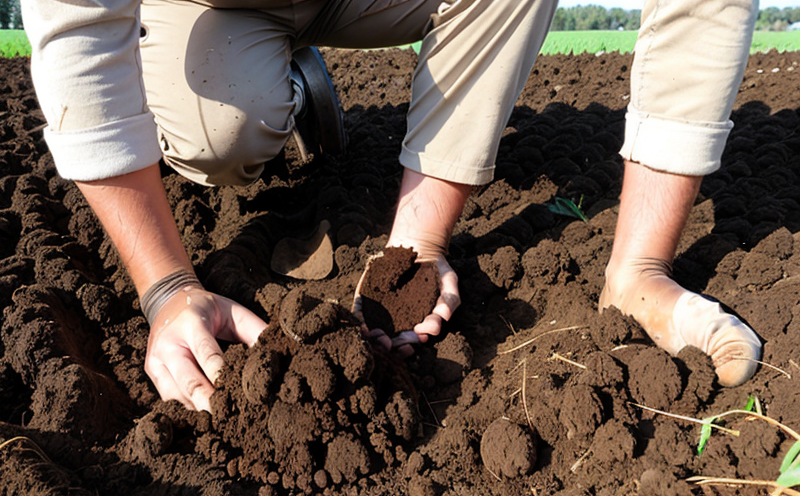Soil Total Carbon Content Testing
The determination of soil total carbon content is a critical component in assessing the health and productivity of agricultural lands. In agricultural and forestry sectors, understanding the carbon content within soil is essential for optimizing crop yields while ensuring environmental sustainability. Soil carbon plays a pivotal role in maintaining soil structure, enhancing water retention, and supporting vital microbial activity.
The total carbon content in soil provides insight into the soil's organic matter, which contributes to its overall quality. This parameter is crucial for agricultural managers as it directly influences decision-making regarding fertilization, irrigation, and land management practices. The testing of total carbon content helps in identifying potential areas where interventions can improve soil health.
The process involves collecting soil samples from various depths and locations within the field or forest to ensure a representative sample set. Once collected, these samples undergo rigorous preparation steps that include air-drying, sieving, and drying at specific temperatures. The dried soil is then ground into an appropriate consistency for accurate analysis using specialized instrumentation.
The most common technique used in laboratory settings today is the combustion method, where the organic matter in the soil is oxidized to carbon dioxide (CO2) through high-temperature incineration. This process quantifies the total amount of carbon present in the sample. Additionally, near-infrared spectroscopy can also be employed for rapid initial screening before more precise methods.
The results from these tests are vital inputs for developing sustainable land management strategies that focus on enhancing soil carbon sequestration capabilities. By accurately measuring and monitoring changes over time, stakeholders involved in agriculture and forestry can implement targeted interventions aimed at increasing soil organic matter content.
- International Acceptance: The combustion method adheres to international standards such as ISO 15432-1:2018 which specifies procedures for determining the total carbon content of soils. Compliance with these standards ensures consistency and reliability across different regions.
- Sustainability Goals: Understanding soil total carbon content is essential in meeting global sustainability goals related to climate change mitigation efforts, particularly those outlined by frameworks like the Paris Agreement on Climate Change.
For quality managers and compliance officers responsible for ensuring regulatory adherence, accurate measurement of soil total carbon content offers assurance that operations comply with relevant environmental regulations. R&D engineers benefit from this data when exploring new technologies designed to enhance soil health or develop more efficient agricultural practices.
The importance of soil total carbon testing extends beyond just immediate applications; it contributes significantly towards long-term ecological balance and resilience against climate fluctuations. As such, investing in robust analytical capabilities is paramount for any organization operating within the agriculture and forestry sectors.





